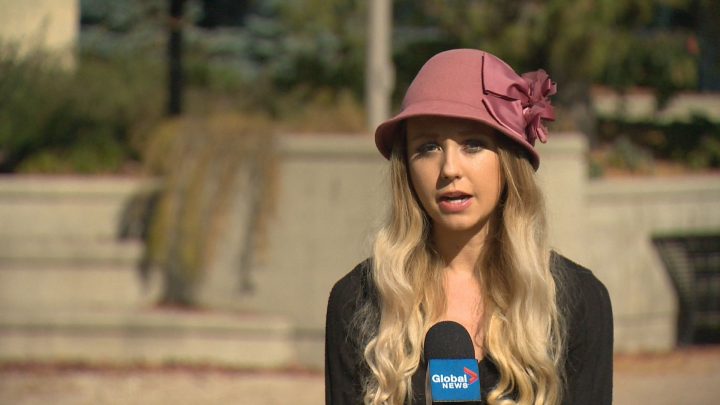A new trial program developed in part at the University of Regina is offering free, online mental health and wellness education to post-secondary students in Saskatchewan.

UniWellbeing is a five-week cognitive behavioural therapy course that aims to help users develop skills to cope with some of the mental challenges common to the post-secondary experience.
“We know that within the student population there is a high prevalence of mental disorders so especially with anxiety and depression at the top of that list,” said lead investigator for the project Vanessa Peynenburg. “But we find that despite it being so common a lot of students aren’t reaching out for support or they just don’t have access to the resources that they need.”
Peynenburg said that so far about 150 students have signed up for UniWellbeing, which includes a weekly phone call or online chat check-in with a professional therapist.

Get daily National news
The program, which was modified from an existing course made by Australian organization eCentreClinic, was first offered in March.
Peynenburg said that while its delivery wasn’t a response to the pandemic, the timing of its delivery has been especially timely as students now have to cope with a health emergency in addition to the usual stresses.
“Since the new semester started, we’ve had a huge increase in the number of students trying to access this service,” she said. “Some people feel academic pressures, like deadlines, but I think the biggest factor that students cite is uncertainty. There’s a lot of uncertainty to begin with, but that’s compounded by the fact that they don’t know what their next semesters are going to look like, or what the job scene is going to look like after they graduate.”
The program is a trial and part of Peynenburg’s PhD research, which includes collecting information through questionnaires users must fill out weekly during enrolment as well as one and three months after course work is completed.
But while the research project has an end date, Peynenburg says the university has plans to continue offering it through the pandemic and beyond.
“We’ve found that it is filling in that gap for students and offering a service that wasn’t available before,” she said. “So we do have long-term plans to continue offering this beyond the scope of just this project that I’m working on.”









Comments